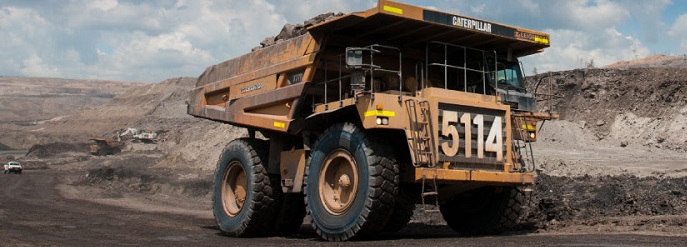Miners Need Certainty about Indonesia's Mineral Ore Export Ban
Entrepreneurs in Indonesia urge the central government to provide clarity about the ban on exports of unprocessed minerals that is set to be implemented on 12 January 2017, provided the government will not alter its policy. Initially, the full ban would be introduced on 12 January 2014 in an effort to boost the downstream mining industries (hence becoming an exporter of mining products that are positioned higher in the value chain rather than remaining dependent on raw materials that are very vulnerable to volatile price movements).
However, one day earlier (on 11 January 2014), then-President Susilo Bambang Yudhoyono issued a presidential regulation that allowed the continuation of unprocessed ore exports until 12 January 2017 (thus a three-year delay). Big international mining companies, such as Freeport Indonesia and Newmont Nusa Tenggara, continued to export copper concentrate but had to agree to contract renegotiations in order to make their contracts in line with the 2009 Mining Law (including the requirement to establish local smelting facilities).
The reason why Yudhoyono issued the presidential regulation is because Indonesia was not ready for the full export ban: there was not enough smelting capacity available to refine the nation's mining output. Therefore, a full ban would have been disastrous for Indonesia's mining industries, employment, and government revenue. Meanwhile, many Indonesian miners were actually reluctant to restructure their business model and invest in expensive processing facilities because commodity prices had already fallen to very low levels (making the smelters not economically viable), while few believed the government would really push for such a controversial policy (as the policy implied a breach of many existing mining contracts). Moreover, Indonesia is known for its "flip-flop" policies.

Jonathan Handojo, Vice Chairman of the Association of Indonesian Processing and Refining Companies (AP3I), emphasizes that it is crucial for the government to ensure legal certainty because another "flip-flop" policy would be a big burden on entrepreneurs. Earlier this year, AP3I already advised Indonesian President Joko Widodo to remain committed to the full implementation of the mineral ore export ban on 12 January 2017 because domestic ore consumption will continue to rise as more and more smelters come online. Moreover, commodity prices are seemingly recovering, led by recently rising crude oil prices. This context makes it more attractive for miners to speed up smelter development.
R. Sukhyar, Chairman of the Indonesian Smelter Association, agrees with Handojo and believes that smelter capacity in Indonesia has currently already reached a decent level.
Ongoing uncertainty in the investment climate of Indonesia's mining sector is a problem, says Irwandy Arif, Chairman of the Indonesian Mining Institute. Just two weeks before the deadline on 12 January 2017 local miners still do not know whether the government remains committed to the deadline or will allow another delay. Over the past couple of months, various government officials have told the press that they are studying the issue.
Indonesia is one of the world’s largest producers of minerals including gold, nickel, copper, tin and thermal coal. The ban on the export of unprocessed minerals is aimed at increasing value-added industries in Indonesia by requiring miners to build local processing facilities (smelters). However, this policy was fiercely criticized by foreign and domestic companies, saying the policy is short-sighted and nationalistic (resource nationalism).
Poll Indonesia Investments:
What is your opinion on Indonesia's New Mining Law (Law No. 4/2009)?
Voting possible: -
Results
- It's a mistake as protectionism scares away much-needed foreign investment (53.1%)
- It's good because it brings Indonesia more benefit from its own mining sector (23.5%)
- It's good but requires time to bear fruit as commodity prices have plunged (16.3%)
- I don't know (7.1%)
Total amount of votes: 98
